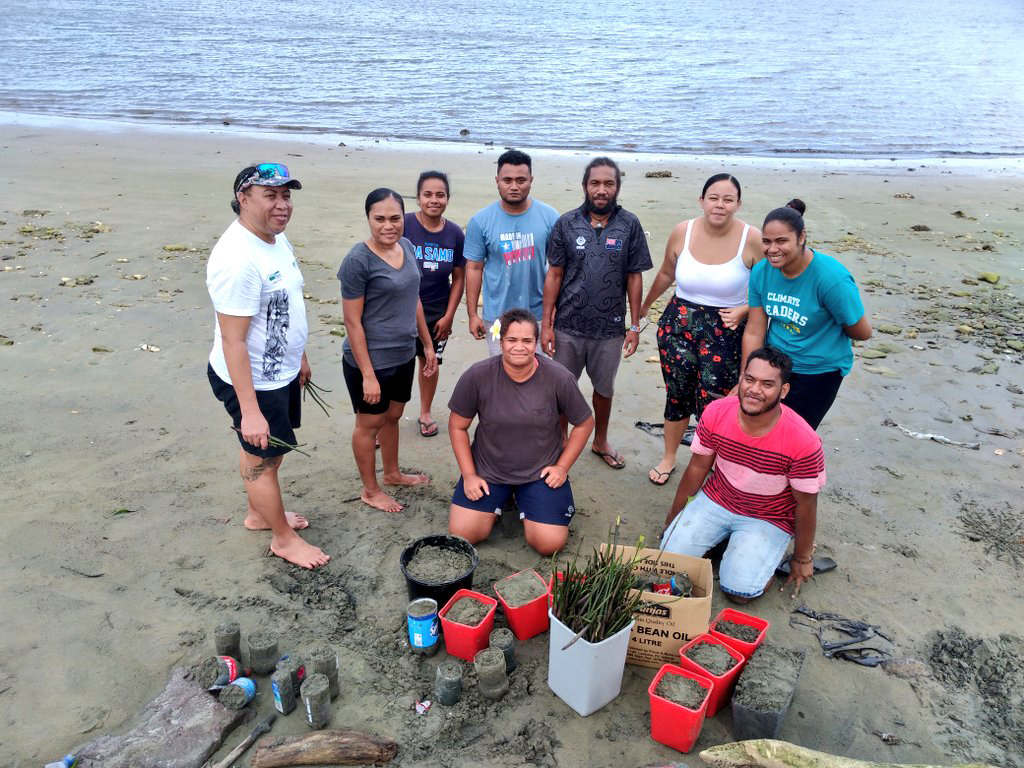Related News

The University of the South Pacific (USP) is adamant about supporting the United Nations Sustainable Development Goal (SDG) 13, Climate Action, which received a score of 50.3/100 and was ranked between 201-300 out of 674 global institutions recognised in this category.
The Times Higher Education (THE) Impact Rankings 2022 highly ranked USP on its contribution toward SDGs achievements.
SDG 13 ensures that no country experiences the drastic effects of climate change. Greenhouse gas emissions are now more than 50 per cent higher than in 1990. Global warming is causing long-lasting changes to our climate system, threatening irreversible consequences action if not acted upon.
USP’s Senior Lecturer (Climate Change, Food Security, Disaster Risk Management) Dr Viliamu Iese said that several programmes at USP were directly building the awareness, knowledge, skills, and capacity of Pacific people to adapt to climate change.
He said the Pacific Centre for Environment and Sustainable Development (PACE-SD) offered integrated, multi-disciplinary programmes such as the Postgraduate Diploma in Climate Change (PGDip CC), Master of Science in Climate Change (MSc CC) and Doctor of Philosophy in Climate Change (PhD CC) since 2010.
Dr Iese said that between 2010 and 2020, PaCE-SD graduated 261 PGDip CC, 40 MSc CC, and 3 PhD CC students.
He also mentioned that many projects implemented by PaCE-SD, including the Global Climate Change Alliance Plus Intra ACP – Pacific Adaptation to Climate Change and Resilience Building Project (PACRES) and the Global Climate Change Alliance Plus Scaling up Pacific Adaptation (GCCA+ SUPA), had supported more than 300 communities and sub-national officers in 15 Pacific Island Countries.
“Furthermore, the Pacific Technical and Further Education (Pacific TAFE) is building the capacity of many Pacific Island people through the Levels 3 and 4 Certificate in Resilience Programme,” Dr Iese added.
He emphasised that supporting vulnerable regions would directly contribute not only to Goal 13 but also to the other SDGs.
“These actions must also go hand in hand with efforts to integrate disaster risk measures, sustainable natural resource management, and human security into national development strategies,” he added.
Acting Deputy Vice-Chancellor and Vice-President (Education) Professor Jito Vanualailai said USP’s certificates have become more valuable and competitive for USP’s students and alumni.
“I am extremely proud that USP is now recognised globally for having quality education,” he emphasised.
USP submitted data for the following SDGs in November 2021 for the 2022 rankings: SDG17: Partnership for the Goals; SDG 4: Quality Education; SDG 7: Affordable and Clean Energy; SDG 13: Climate Action; SDG 14: Life Below Water and SDG 16: Peace, Justice and Strong Institutions.